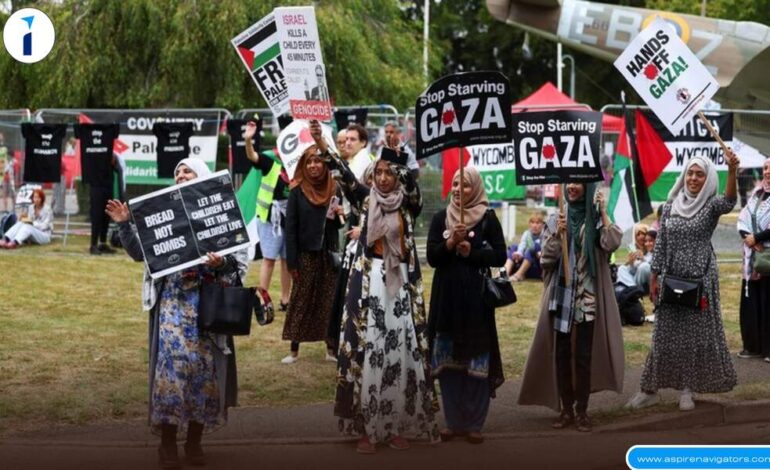New U.S. Entry Restrictions Target Gaza Visitor Visas

In an important change in immigration policy, the United States has banned the issuing of Gaza visitor visas, impacting persons resident in or traveling from Gaza. This move tries to address national security concerns, but it has elicited strong reactions, particularly from families and humanitarian organizations.
The suspension affects anyone requesting short-term travel to the United States, including tourists, business travelers, and relatives. Diplomats confirmed the policy, noting that it only applies to Gaza-issued applications. US consulate offices will no longer process certain visa requests until further notice.
Critics claim that the strategy goes beyond strategic caution and imposes hardship on regular individuals. Many Gazans rely on US travel for education, medical care, business, and family reunification. This ban puts people’s lives on hold, prevents them from celebrating birthdays and milestones, and may delay vital medical care.
Supporters of the decision justify it by pointing to heightened tensions and ongoing hostilities in the region. They claim shutting down visa routes is a necessary temporary measure to maintain intense scrutiny over travel from areas with security risks. Still, no specific timeline for lifting the suspensions has been provided.
Gaza Visitor Visas
This terminology Gaza visitor visas certainly has weight. For Gaza inhabitants, such visas are more than just paperwork; they provide a gateway to global opportunity, education, and crucial humanitarian assistance.
Families say they feel forgotten. “We had plans to reunite for our daughter’s graduation in California,” shares one parent waiting for visa approval. Now, those dreams are on indefinite hold.
Meanwhile, medical professionals worry that patients requiring specialized treatment exclusively available in the U.S. will suffer. Gazans with complex conditions risk delays that could worsen their prognosis.
On a diplomatic front, Palestinian officials have issued appeals, urging negotiations that might restore visa services. They argue blanket suspension is neither fair nor sustainable. They’re urging the U.S. government to consider exceptions, particularly for urgent medical and educational cases.
Human rights organizations are also raising alarms. They assert the policy may run afoul of international humanitarian standards, especially where civilian welfare is concerned.
The United States, for its part, maintains that the suspension is not intended to target civilians but to uphold rigorous screening. Officials have said exceptions might be considered but have stressed that any reconsideration would hinge on improvements in security indicators.
Many observers predict this stance may spark litigation or diplomatic pressure in upcoming weeks. The indefinite nature of the pause, combined with the lack of alternative routes, places Gazans in a vulnerable legal and emotional limbo.
To summarize, the new measure highlights growing contradictions between policy and human need. Visitor visas to Gaza were once a bridge, but now they are a barrier. The world is waiting to see if a road forward will emerge, allowing families to reconnect, kids to study, and sick individuals to recuperate.
Read Exclusive interview with Dr. Mohammed K. Qaisi

























